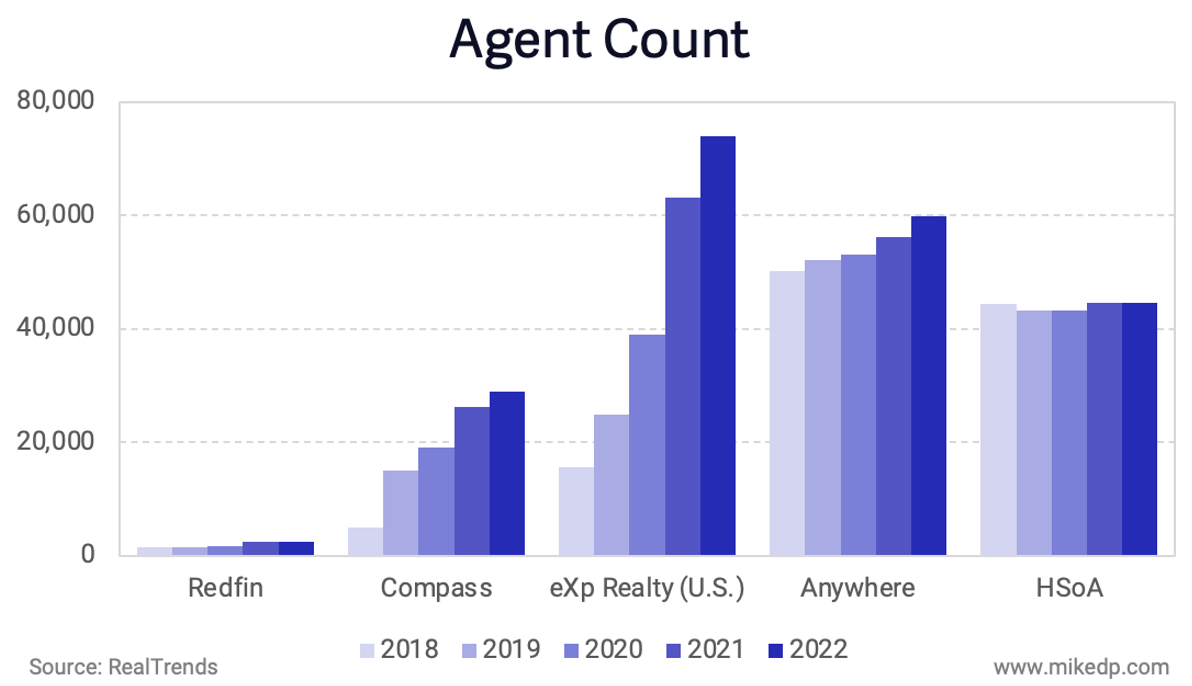In these times, double down — on your skills, on your knowledge, on you. Join us Aug. 8-10 at Inman Connect Las Vegas to lean into the shift and learn from the best. Get your ticket now for the best price.
This article was reprinted with the permission of Mike DelPrete.
 2022 was a tumultuous year: the real estate market turned, transactions dropped, and the largest U.S. brokerages were all forced to chart new courses.
2022 was a tumultuous year: the real estate market turned, transactions dropped, and the largest U.S. brokerages were all forced to chart new courses.
Why it matters: Agent count, transaction volumes and the relative growth and decline of brokerages in 2022 are all powerful predictors of future performance.
Agent count continues to fuel the business of the major U.S. real estate brokerages.
- EXp Realty is the clear stand-out, with an exponential increase in the number of its U.S. agents — which now eclipses industry incumbents Anywhere and HomeServices of America (HSoA).
- Overall growth slowed across the board in 2022, and Anywhere has seen a recent uptick in agent count, which has yet to translate into a corresponding uptick in transaction count.

Transaction volumes and brokerage performance are directly correlated to agent count.
- Among its peers, eXp Realty once again outperformed the market, growing its transactions by 12 percent in 2022, compared to an overall market decline of 18 percent.
- eXp’s large brokerage peers all transacted less in 2022 than the year before, while Compass, also buoyed by recent agent count gains, experienced less of a decline than the traditional incumbents (and Redfin).

The declining market has forced companies across the industry, brokerages included, to cut costs.
- But those cuts are unequal among peers — cash flow and profitability dictate the speed and severity of cuts.
- Throughout the year, Anywhere and Compass, which have the highest operating expenses, have been forced to cut the deepest, while eXp and Douglas Elliman have increased their operating expenses (from a smaller base).

What to watch: Agent count growth and transaction volumes will remain sluggish in 2023.
- A further slowing of the market will force some companies to cut even deeper.
- It’s a numbers game: Fewer transactions will go to fewer agents — so brokerages with strong agent count growth will outperform the market (just look at eXp).
The bottom line: The market correction is a great equalizer — and it’s accentuating the differences between brokerage business models.
- In a market of musical chairs with fewer chairs available, companies with sustainable models, lower overheads and strong recruiting are more likely to succeed.
Mike DelPrete is a strategic adviser and global expert in real estate tech, including Zavvie, an iBuyer offer aggregator. Connect with him on LinkedIn.













